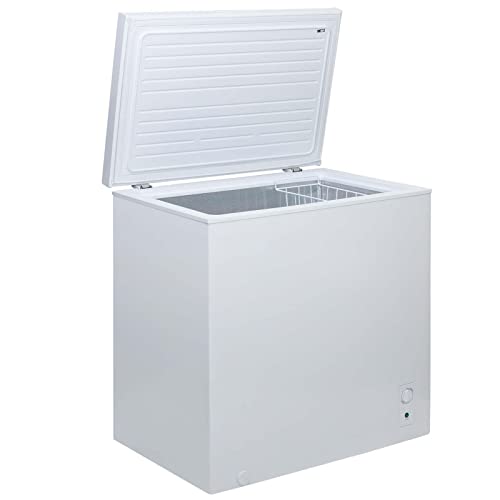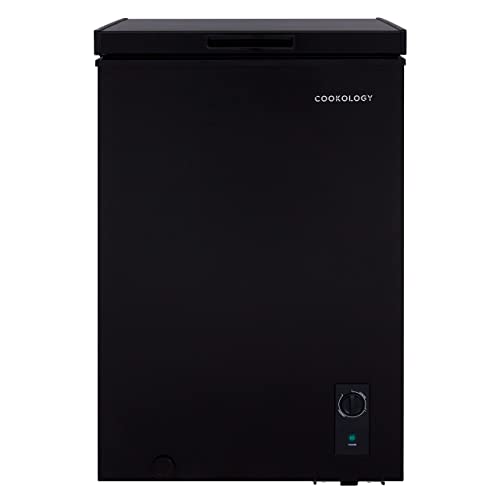How To Make A Successful Fridge With Ice Maker Tutorials On Home
페이지 정보
작성자 Candida 댓글 0건 조회 150회 작성일 24-02-07 04:39본문
 Benefits of a fridge freezers For sale With an Ice Maker
Benefits of a fridge freezers For sale With an Ice MakerMany refrigerators come with an ice maker that is either built into the door, or in the freezer. This makes it simple to drink cool, refreshing water. These refrigerators are more expensive, but they keep you from having to fill and clean Ice trays.
To make Ice, the icemaker's circuit sends current to a water valve. The water then flows into the ice mold and is then frozen to form cubes.
Convenience
One of the most obvious benefits of having a fridge equipped with an ice maker is that it saves your time. The maker will fill the trays for you which will cut down on time. It is usually activated by a sensor that measures water levels in the freezer. Once it reaches the proper temperature, the process of making ice commences. A valve opens and a cooling device channels water into the molds to make ice. A built-in thermistor monitors the ice to make sure it is completely frozen, and when this occurs the valve shuts down and the ice is moved from the molds to the storage bin.
It's also beneficial when you host guests. You'll always have plenty of ice and avoid embarrassing moments when guests ask for more ice, only to find that you're out. There are refrigerators equipped with an ice maker. These have a dispenser inside the door, making it easy to serve water and access it without having to open the refrigerator.
Fridges with ice makers are also more energy-efficient than conventional models. The ice-making machine requires a only a tiny amount of energy to operate. Since they are utilized for a long period of time they can save you many dollars on your energy bills.
If you're looking to cut your expenses even more, you can opt for a model that does not make use of a cooling tower. These fridges with an ice maker are referred as "direct cool" units. They use the refrigerant that is already cooling your refrigerator to make ice. These models are more efficient than traditional ice makers and can cut down your energy use by as much as 25%. This will save you money on utilities and reduce your carbon footprint.
Efficiency
With an ice maker, you will save time by not needing to fill and freeze ice cubes. Furthermore, these machines have an ongoing supply of fresh ice available for you to dispense from the refrigerator or pour into your cup whenever you need. This makes them more convenient than refrigerators which require you to go into the freezer to grab a bag of ice from the storage bin.
The majority of refrigerators with ice makers are combo models, which include an ice maker in the freezer along with a standard refrigerator compartment. You can also find refrigerators/freezers that are standalone with ice makers integrated into the door or the back of freezer.
The ice maker inside your refrigerator is typically powered by the main water supply to your home. A timed switch within the circuit sends a brief current down the electrical wires to the water valve. The valve is then opened and water can flow into the molds. When the ice-making process is completed, the built-in thermometer will signal the timed switch to indicate that the ice has been cooled enough to stop the flow of water into the molds. The motor then rotates a shaft using arms that transfer the ice into the bin tray that holds the ice.
Some ice machines allow users to choose between two types of ice that are standard ice cubes or crushed ice. This is the most suitable option for hot weather if you want to reduce the time required to cool your drink.
Your freezer might have been set to low If your ice maker stops producing ice, or the resulting frozen ice appears small and discolored. Check your owner's manual to find the manufacturer-recommended temperature and try setting it higher.
If your ice maker is not making ice or is producing a small amount, it could be because the water fill tubes are blocked. These tubes are vital for the ice-making machine to perform effectively. They get their water from your home's main water supply. Based on the state of your water supply, these tubes can create blockages and mineral deposits over time. You can usually clear them up with a pipe cleaner or fridge freezers For sale by running the water line in your refrigerator through a filter to eliminate minerals.
Water Dispenser
The water dispenser on refrigerators with icemakers allows you to get chilled drinking water that is filtered and filtered without opening the fridge door. Some models also let you add carbon dioxide to make sparkling water, or pour hot water to make instant coffee, Fridge freezers for Sale tea and more. These models are generally more expensive than refrigerators with Icemakers and require a separate connection for the water that is then melted into the ice.
Refrigerators first introduced water and ice dispensers back in the 1980s, using simple ice makers with automatic controls that made one block of ice per day. Nearly half of all refrigerators come with an ice maker and a water dispenser in the.
The dispenser collects cold water from the plumbing of the refrigerator and transports it to a small filter that filters out basic contaminants. The water is then transported to an ice mold where it is transformed into one, solid block of ice. The ice is then kept in a collection bin until it is ready to be released.
When you want to drink water, a timed-switch in the circuit of your refrigerator sends a short current through two wires that are connected to the dispenser. The current triggers the solenoid that opens the water valve and lets in just enough water for an ice mold. The ice mould is usually a well made of plastic with several cavities. When the ice is formed then the valve closes, allowing the ice cubes to drop out of the mold and into the bin, where they wait to be dispensed.
Most problems with refrigerator ice or water dispensers can be resolved with a little troubleshooting. For more information, check out our Fridge Dispenser Troubleshooting article to find out the most frequently occurring problems and how to solve them.
Use traditional Ice cube tray that you can fill in the kitchen sink as an alternative to refrigerator water dispensers and ice dispensers. These trays can hold up 25 cups and permit you to decide how much ice to have at any point.
Cost
The convenience of having an ice maker in your refrigerator comes with the cost of. Refrigerators with an ice maker are typically more expensive than those without one, as they have to be professionally installed and connected to a water supply and might require more maintenance or repairs. Also, refrigerators that have Ice makers use more energy.
The majority of fridges and freezers equipped with an ice maker provide the option of making standard ice cubes and crushed ice. There is also a variety of shapes and sizes to choose from so you can design your ice to suit your preferences.
People often get used to a particular kind of ice, and are disappointed when they cannot find it in the store or restaurant. If you have a fridge with an ice maker, you can avoid this problem by setting up your fridge freezer to make your preferred kind of ice automatically.
If you are a frequent drinker or host large gatherings, it can be frustrating to run out of ice. You should be able to enjoy a cold beverage anytime you want when you're enjoying a relaxing evening with your loved ones or spouse after a long day at work or entertaining friends and family at home.
One of the main advantages of having a fridge with an ice maker is that it offers peace of mind knowing that you'll have a constant supply of ice for all occasions. But if something goes wrong with the appliance, you'll probably need to hire an appliance repair pro to fix it.
The average price of a refrigerator repair or a standalone repair to an ice machine varies based on the issue and the model of appliance, but here are a few of the most frequent issues:
If the ice maker in your refrigerator isn't functioning it could be due to a blocked tube or faulty valve. These components are electrically powered that can be damaged over time, and hiring a professional to replace them could cost anywhere from $150 to $200.

댓글목록
등록된 댓글이 없습니다.

